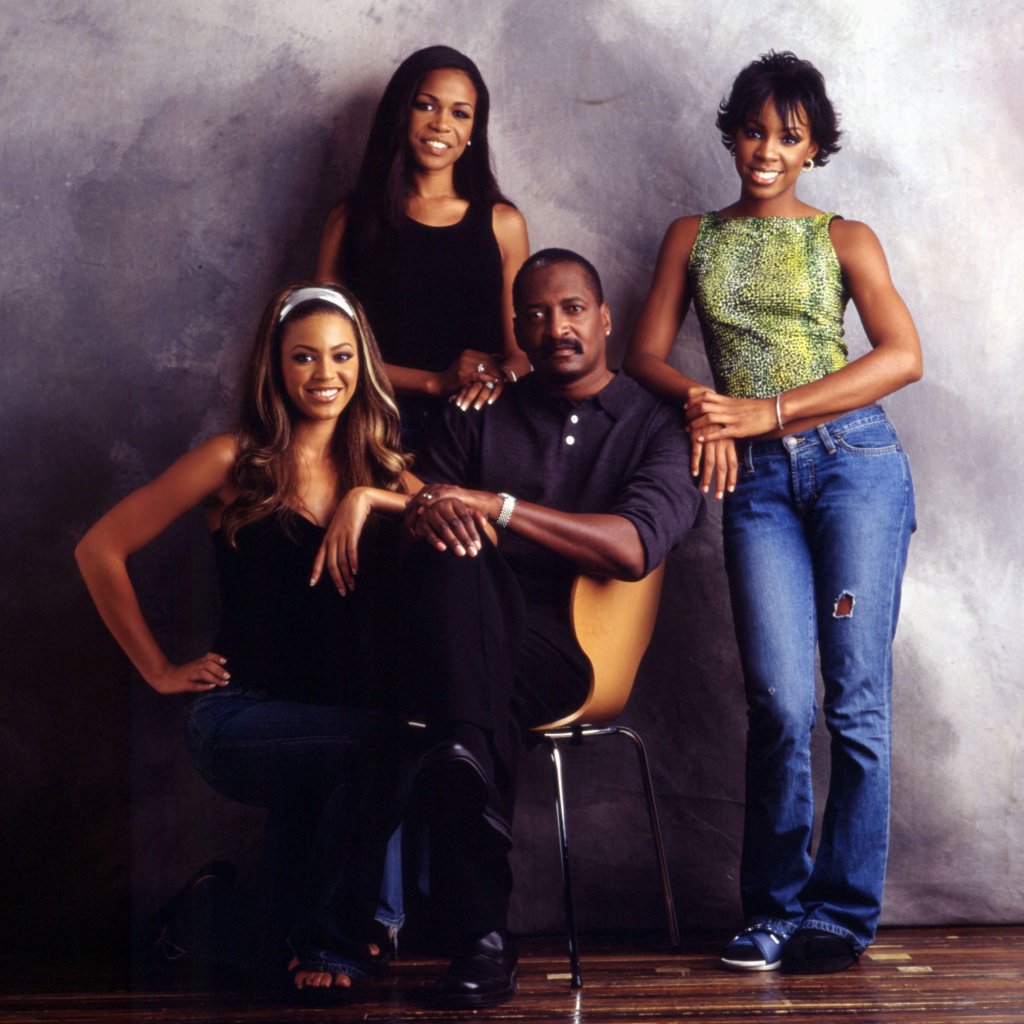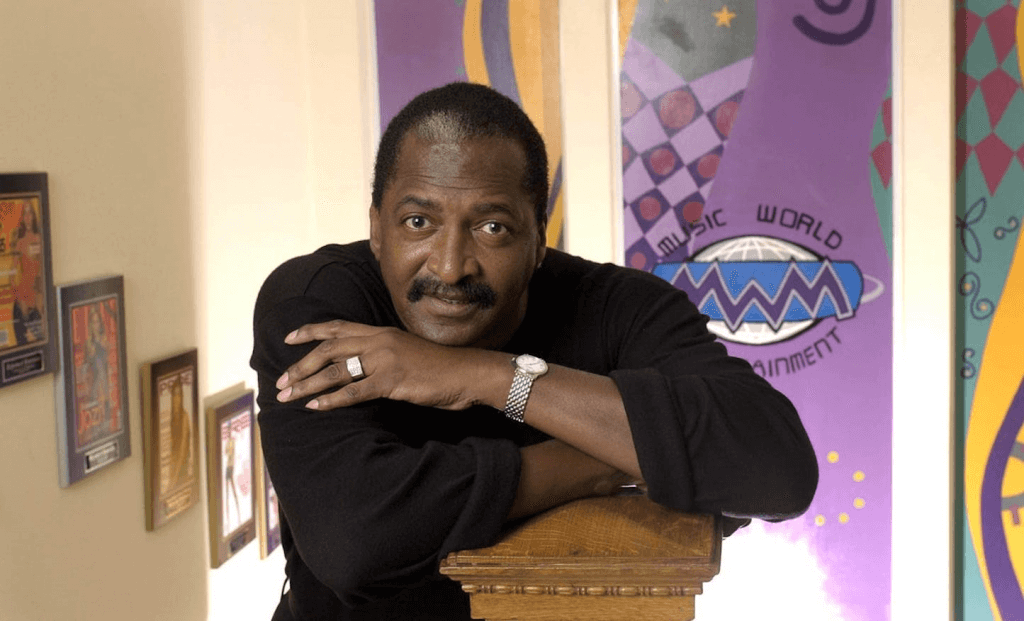Championing Women
- Mathew Knowles, 72, has been honoring all the females in his life during Women’s Month and is reflecting upon the formation of Destiny’s Child, the girl group he helped launch in the 1990s, which kicked off his daughter Beyoncé’s incredibly successful career.
- The former music manager is a breast cancer survivor and has made it a priority to educate both men and women about early detection, along with genetic testing, as he learned about his BRCA2 mutation shortly after his diagnosis.
- These inherited mutations in BRCA1 and BRCA2 can increase the risk of female breast and ovarian cancers, and have also been associated with increased risks for several other cancers.
“It is hard to believe that it has been almost 25 years since we began this journey this June,” Knowles began his Instagram post, sharing a photo alongside former bandmates Kelly Rowland, Michelle Williams and Beyoncé on a boat. (Along with the “Queen Bey,” 42, he shares daughter Solange, 37, with his ex-wife Tina Knowles, 70.)
Read More“Beyoncé, Kelly, and Michelle, on this Women’s Month, I wanted to take a moment to express my admiration for the incredible talent, hard work, and dedication that each of you have poured into your craft. Your relentless pursuit of excellence and unwavering trust in each other have undoubtedly propelled you to become the number one female group of all time.”
View this post on Instagram
Knowles added, “Your music has touched the hearts of millions, inspiring and empowering fans around the world. Your harmonies, performances, and message of strength have left an indelible mark on the music industry and beyond.”
“Through every challenge and triumph, you have stood strong together, embodying the true essence of female empowerment and solidarity. Your resilience and perseverance serve as a beacon of hope and inspiration for women everywhere.”
“I am immensely proud of all that you have achieved individually and collectively. Your legacy will forever live on, continuing to inspire generations to come. Thank you, Beyoncé, Kelly, and Michelle, for your music, your talent, and your unyielding spirit. You are truly legendary.”

Signing off with one last note, the male breast cancer survivor said: “Many have gotten it wrong that Destiny’s Child broke up. No, you were smarter than that and you always knew that one day Destiny’s Child would retire on top!! Hopefully, one day you come out of retirement!!”
“So sweet they are children of destiny for sure!!! The three of them have touched my life and appreciate their legacy,” one fan commented.
Another supporter echoed the same sentiment and gave Knowles kudos for his role in their rise to superstardom.
“This is SO beautifully said. Your sentiment is truly heartwarming. You served as their guiding light (their North Star ⭐️), and with your exceptional business management, guidance, love, and support, they blossomed into the incredible force that is Destiny’s Child. 💜🎼🙏🏽.”
The girls, who released the power anthem “Survivor” in 2001, went their separate ways in 2006 and Beyoncé’s solo career skyrocketed, catapulting off of the number one hits of Destiny’s Child.
Last year, the “16 Carriages” singer broke the record for winning the most Grammys ever in history with 32 trophies.
Knowles’ Breast Cancer Journey
No longer working full-time in music with his daughters, the university professor has become a voice for breast cancer awareness, as he was diagnosed with stage 1 breast cancer in 2019.
Telling SurvivorNet in an earlier interview that he prefers to call it “male chest cancer,” Knowles said he believes that more men would get checked if the word “breast” isn’t associated and since that area on a male is usually referred to as their chest.

Some survivors argue the opposite to destigmatize the word “breast” when it comes to male breast cancer so men know that they can also get the disease. However, each individual has a right to express their own personal journey as they wish — and the intentions in this case are the same.
When Knowles shared his cancer journey with SurvivorNet, he said he takes charge of his health just like he would a business. He says he stopped drinking and made some hefty lifestyle changes, including eating a clean diet.
“It’s like everything else in life. It’s about knowledge,” he said. “And knowledge is power.”
Knowles was a little familiar with the disease because he used to sell breast cancer imaging equipment.
“Oddly enough, I sold the leading modality for breast cancer detection from 1980-1988 at the medical division of Xerox, so I had some knowledge of breast cancer.”
He knew to get checked after finding little drops of blood on his white shirts and on his bedding in July of 2019.
Mathew Knowles discusses breast cancer topics with SurvivorNet
“I knew from years ago what that meant, and I immediately went to my physician who immediately referred me to get a mammogram that led to an ultrasound that led to a biopsy that led to surgery. Somewhere in all of this, there was a delay in getting back my pathology report. Had I got my pathology report back sooner, I would have had a double mastectomy, but I didn’t.”
Added Knowles of the discovery of his BRCA2 mutation, “In all my years working [in medical equipment sales] I had never heard the words BRCA2 — I knew nothing about BRCA2 or genetic mutation.”
Knowles made it a priority to learn as much as he could about it so that he could further educate his family, especially because he has a history of cancer on both sides.
After learning about their father’s gene mutation, he said his daughters went in for genetic testing. They both tested negative for the BRCA gene.
Learning More About BRCA Mutations
BRCA (a breast cancer gene mutation) is actually two genes (BRCA1 and BRCA2), each proteins that work as tumor suppressors. They help repair damaged DNA, and are important for ensuring the stability of each cell’s genetic material.
When either of these genes is altered, that mutation can mean that its protein product does not function properly, or that damaged DNA may not be repaired correctly. These inherited mutations in BRCA1 and BRCA2 can increase the risk of female breast and ovarian cancers, and have also been associated with increased risks for several other cancers.
RELATED: How Testing For BRCA In Breast Cancer Works
Dr. Rebecca Arend, Associate Scientist at the University of Alabama, Birmingham, explains the mutation in terms of its ability to repair damaged DNA: “What a BRCA mutation is, is a defect in your ability to repair a double-strand break (in your DNA).”
The BRCA mutation (which is passed on from a father or a mother), can cause a variety of cancers, including fallopian tube and peritoneal cancer, which are ovarian cancers.
Knowles wants people to know that it’s not a “women-only” gene. Because BRCA mutations aren’t tied to the X or Y sex chromosome, you’re just as likely to inherit the mutation from your father as you are from your mother. Ethnicity also plays a role in how likely someone is to have a BRCA mutation.
RELATED: How Testing For BRCA In Breast Cancer Works
Studies have found a higher prevalence of the mutations among people with African ancestries and people of Ashkenazi Jewish descent than among those in the general U.S. population.
“Genetic testing can empower you with such important information,” Dr. Beth Karlan, gynecologic oncologist at UCLA Medical Center explained earlier to SurvivorNet.
Speak with your doctor today about genetic testing and be sure to stay up on your screenings.
Learn more about SurvivorNet's rigorous medical review process.

